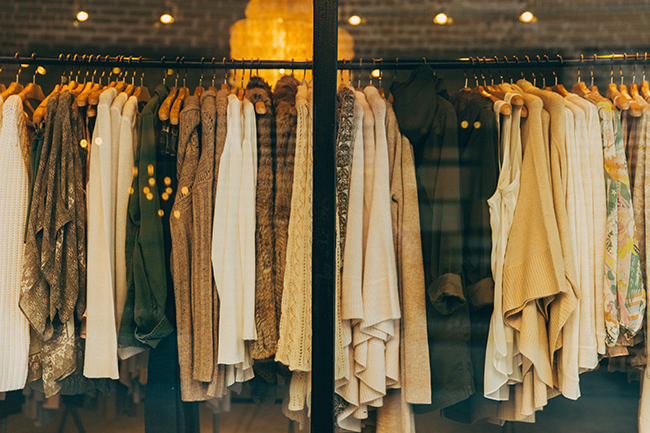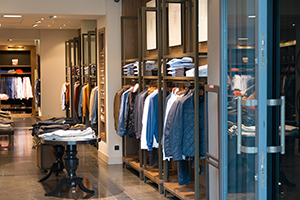Seasonal Dress SOS

By Miki Makrillos
There has been discussion among style experts—the fashion calendar is broken. The fluctuating state of fashion itself, including designer burnout and consumer fatigue, makes it clear how confusing and chaotic the creative industry has become.
Some critics have even hinted that there is a disconnect between creativity and commerce at the heart of fashion. Now, original style has a quick paced commercial perspective. Daniel Marks, director of the public relations agency The Communications Store has argued that there needs to be an alliance between the commercial and creative. “The key to a successful brand is the balance between creativity and commerce, and a team who works together towards the same goals with mutual respect,” Marks says. “When you get the right CEO, that’s when success happens.”

Fashion has become a “beast” that needs to be fed quickly with a volume of creative ideas.
Currently, the fashion industry expects designers to produce as many as six collections a year, in addition to attending events and press viewings, as well as have a significant social media presence. Is it a surprise that designers are too tired to create anymore? Is designer burnout a real thing? Is this the reason these creative minds are exiting luxury brands? Recently designers such as Alexander Wang, Raf Simons, and Donna Karan left their respective luxury brands (Balenciaga, Dior, Donna Karan International) in an attempt to preserve a work-life balance, and focus on their own namesake labels, or as in Ms. Karan’s case, to focus on her Urban Zen company and foundation. Within the last 20 years, we have seen designers take the role of creative directors to give their labels new identities while still working on and maintaining their personal collections. Fashion’s current business model and expectations of designers are apparently impractical and unsustainable.
Designer burnout will eventually lead to an industry where “fast fashion” will take over, and inspiration and quality will become secondary.
Technology has had a powerful impact on fashion and how people are now moving faster onto the “next thing” or “new trend”, versus the tradition and precision of fashion design. Technology speed and exposure, along with large conglomerates demanding numbers leave designers struggling to stay afloat.

Traditionally, editors and buyers attended fashion shows and selected items for their magazines and stores. Those selections would become available to consumers from four to six months later. However, this has now changed drastically as a result of technology and social media. Consumers have access to images of collections simultaneously to editors and buyers, as well as access to some of these items immediately after they’re shown on the runway. This instant gratification leads to other issues including seasonal confusion, and as a result, consumers experience product fatigue by the time the actual collection hits the stores. This dilemma was researched by The Boston Consulting Group, who interviewed a mix of designers, fashion execs, retailers, editors, show producers, casting agents, and bloggers. Interviews revealed that now is the time for a change in the industry. The issue of seasonal relevancy was clearly conveyed, with those designers working to keep up with current demand experiencing major burnout and the subject of fashion fatigue for the consumer where fashion looks old by the time it reaches the store. Yes, it is a new fashion line that feels old to the consumer.
Finally creating a sustainable business is tough when items are being made faster than they are purchased, leaving businesses with a loss when clothes are marked down by the time they are seasonally relevant. The pace of fashion collections is so accelerated that brands are forgetting what the consumer wants to wear, and when they want to wear it. Seasonal dressing seems to be blended from one season into the next. In a world where we are all trying to achieve a work-life balance the fashion industry is screaming SOS as it finds its own balance.

About Miki Makrillos Miki Makrillos is a commentator on style and fashion on her website: wonderwomantalks.com



